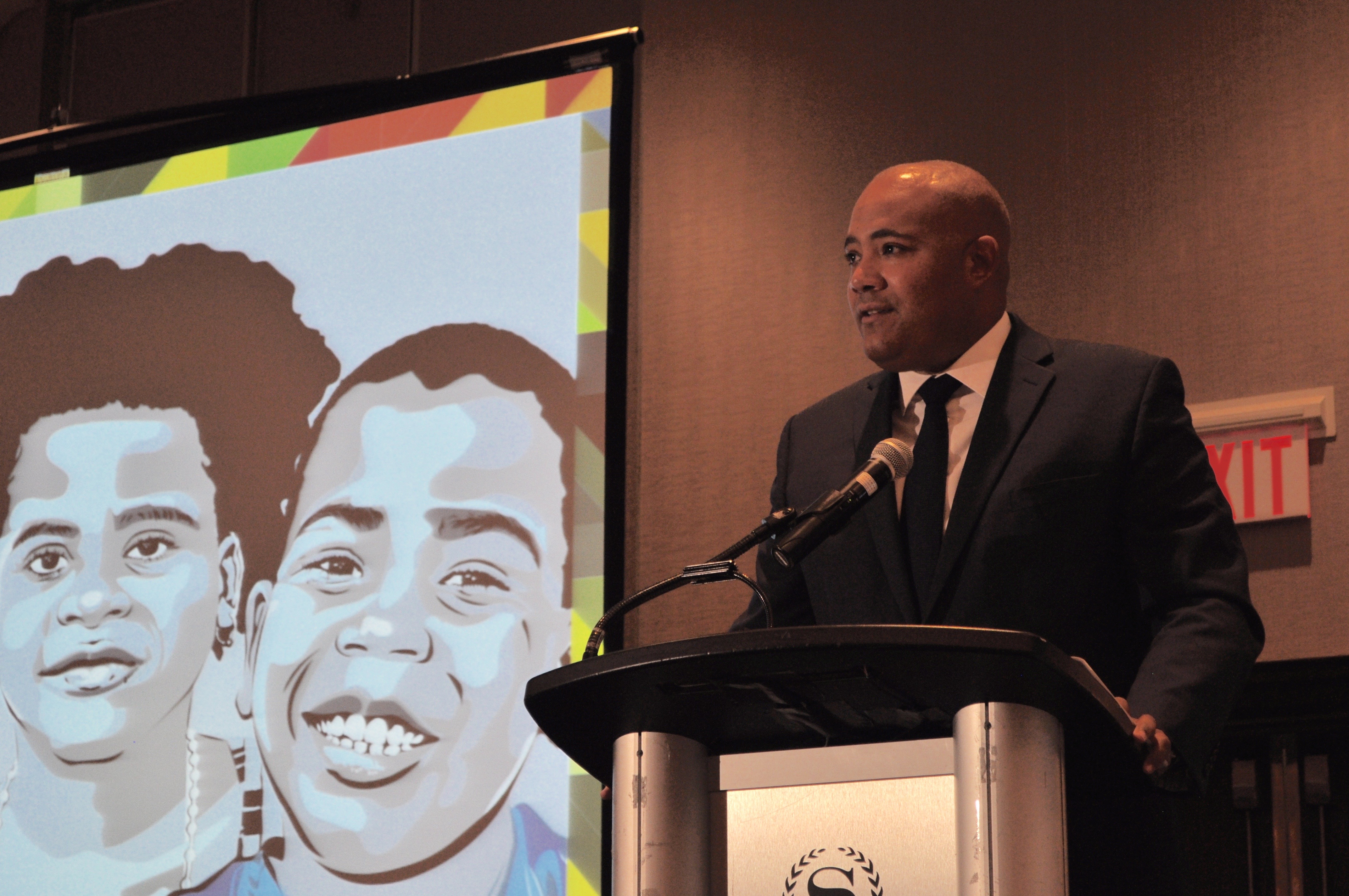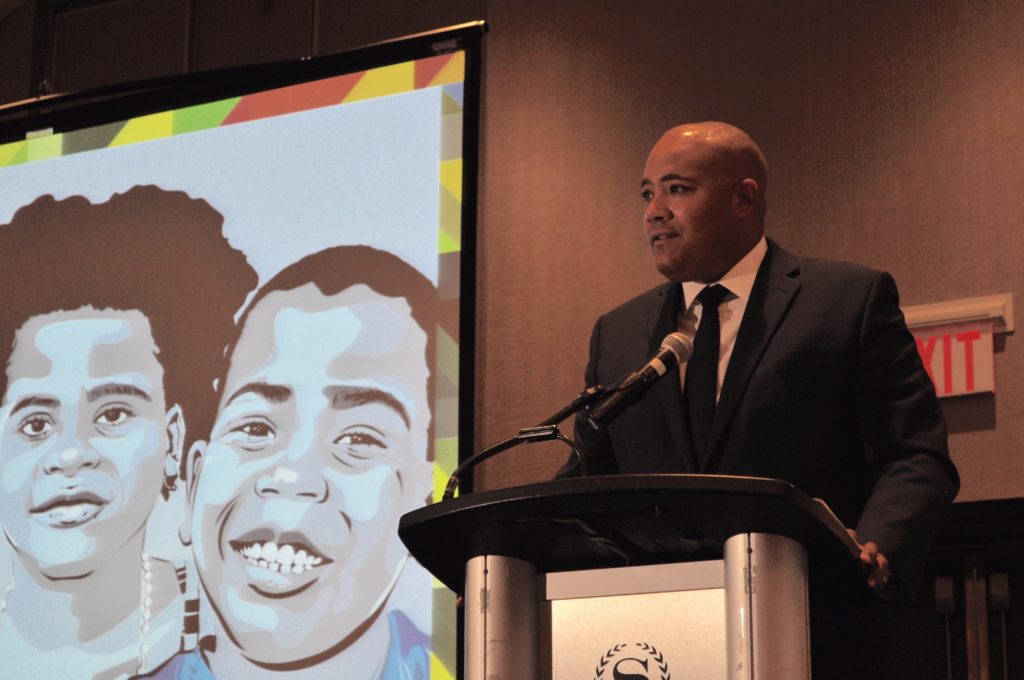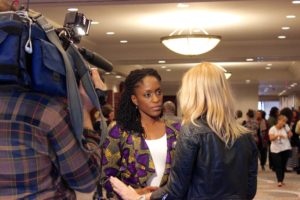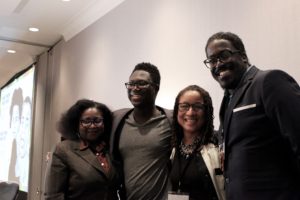The publication of the two-volume Practice Framework, One Vision One Voice: Changing the Ontario Child Welfare System to Better Serve African Canadians, is a historic event for both the child welfare sector and the African Canadian community in Ontario.
The Framework, which was launched at a one-day symposium at the end of September, is unique for Ontario child welfare in that it was authored by the African Canadian community through a 17-person steering committee, with direct input from over 800 community members, service users, and youth in care. A Reference Group made up of 13 Children’s Aid Society staff also provided feedback toward the final recommendations. It was funded by the Ministry of Children, Community and Social Servicess (MCCSS) through the Ontario Association of Children’s Aid Societies.
The Framework calls for sweeping reforms to the child welfare system to address systemic racism and to reduce the over-representation of Black children in care. These reforms include the collection of race-based data, mandatory training for child welfare professionals that addresses anti-Black racism, and culturally appropriate services and programming for Black children, youth and families.
The Hon. Michael Coteau, Minister of Children and Youth Services and Minister responsible for the Anti-Racism Directorate, Renu Mandhane, Chief Commissioner of the Ontario Human Rights Commission, and Irwin Elman, Provincial Advocate for Children and Youth all attended the symposium and voiced their support for its recommendations.
Minister Coteau told those in attendance that he would be mandating all Children’s Aid Societies to begin collecting disaggregated race-based data in the very near future, one of the Framework’s major recommendations.
“As the Minister responsible for children and youth and the Anti-Racism Directorate, it is my job to drive change in the child welfare system,” Minister Coteau said. “If you have no data, you have no problem and no solution.”
Renu Mandhane, Chief Commissioner of the Ontario Human Rights Commission, acknowledged the significance of the Minister’s announcement and the work of One Vision One Voice, but was quick to note that “collecting data on its own is not a solution. It’s a tool.”
The symposium also provided an opportunity for members of the African Canadian community and the child welfare sector to both celebrate and reflect upon this important work.
Kike Ojo, the One Vision One Voice Project Manager, framed the process of changing the child welfare system as an act of resistance, saying that resistance is the African Canadian community’s DNA.
“Today’s recommendations capture the voice of the community, and are yet another moment of African Canadian resistance that will benefit all,” Ojo said.
Nicole Bonnie, Director of Diversity and Anti-Oppression at Toronto Children’s Aid Society, moderated a panel of speakers who shared their experiences of being Black in and within the child welfare system. Zakiya Tafari, Acting Managing Director of Young and Potential Fathers talked about the difficulties Black men face navigating and interacting with Children’s Aid Societies. He asked, “if we know that fathers are important, why do we act in contradiction to that when it comes to Black fathers?”
Christopher Cottle, a former youth in care discussed the important role Black foster families play in building Black youth’s confidence and pride, and the need for culturally appropriate services and foster homes. Music, food, and haircare hold significance for Black youth and help keep them connected to their roots.
Notisha Massaquoi, Executive Director of Women’s Health in Women’s Hands Community Health Centre shared her personal story of adopting her daughter through children’s aid, along with the challenges she often faces collaborating with the sector through her work in healthcare.
“We have expertise working with Black communities,” said Massaquoi. “We are offering CAS a lifeline. We want to work with you.”
Dr. Akua Benjamin, professor of social work at Ryerson University, emphasized the need to always focus attention back to the roots of the One Vision One Voice work: the children.
“I think about the cocoon of love I grew up in,” said Dr. Benjamin. “That’s what we want for our children.”
Ojo acknowledged that the One Vision One Voice project is only the beginning. The next phase of the project, which is being proposed to the MCCSS, will focus on implementation of the recommendations from the Framework. It will involve building sector-capacity for culturally appropriate responses, services and programming, collecting and analyzing the right data, and ensuring the sustainability of these strategies.
Irwin Elman, Provincial Advocate for Children and Youth stressed the need for the government to do more, especially when it comes to implementing the Practice Framework’s Race Equity Practices. The problem of anti-Black racism in the child welfare sector has been identified by leaders in the past, Elman noted, but with the launch of this community-led Practice Framework, “it feels different.”
To learn more about the One Vision One Voice project or to download copies of the Practice Framework, visit www.oacas.org/onevisiononevoice.



